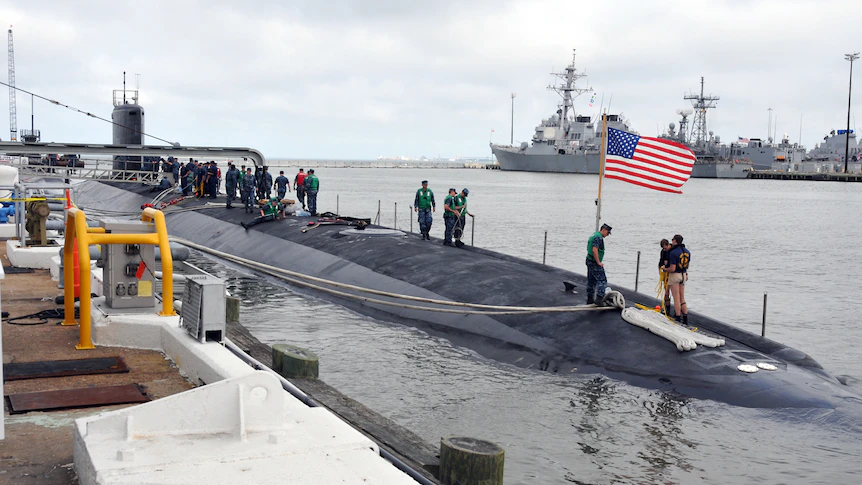
Additional University Slots for AUKUS Workforce Expansion
ED: You may have grandchildren who would be interested in these studies.
Defence Minister Richard Marles recently unveiled a significant initiative aimed at boosting the skilled workforce required for the AUKUS nuclear-powered submarine project. The Australian government, is investing $128 million over four years, starting in 2024, to create thousands of extra Commonwealth-supported places in Science, Technology, Engineering, and Mathematics (STEM) courses at 16 Australian universities.
The primary goal is to attract and train Australian students in engineering, mathematics, chemistry, and physics, aligning with the demands of the AUKUS nuclear submarine program. These additional places, totalling 4,001, will be distributed across 38 STEM-related courses, opening opportunities for students beginning their studies in the next academic year.
Minister Marles emphasising its importance in cultivating the workforce essential for constructing and maintaining Australia’s conventionally armed, nuclear-powered submarines. Over 1,000 of the new slots will be allocated to South Australian universities, directly supporting the submarine construction efforts in Adelaide.
The designated universities participating in this program include:
- The University of Adelaide: 700 places
- RMIT University: 426 places
- University of Wollongong: 425 places
- University of New South Wales: 340 places
- Flinders University: 330 places
- Curtin University: 320 places
- The University of Queensland: 315 places
- The University of Melbourne: 300 places
- Macquarie University: 190 places
- The University of Newcastle: 140 places
- Western Sydney University: 120 places
- Charles Darwin University: 110 places
- The Australian National University: 108 places
- Charles Sturt University: 71 places
- The University of Western Australia: 56 places
- Murdoch University: 50 places
The allocation process involved assessing universities based on the proposed courses’ ability to meet the growing demand for advanced technical skills.
It is important to encouraging more students to pursue STEM subjects to meet the AUKUS program’s skill requirements. Criteria for allocation included the universities’ plans to engage quality teachers, address unmet student demand, expand enrolment levels, and promote participation from under-represented backgrounds.
These 4,001 additional places signals the ongoing commitment to higher education, adding to the 20,000 Commonwealth-supported places already funded. Flinders University expressed gratitude for the government’s decision to allocate 330 Commonwealth-supported places for the Nuclear-Powered Submarines Student Pathways program. Flinders sees this as recognition of its leadership in AUKUS education and research, contributing to South Australia’s workforce development and shipbuilding capacity. Flinders University is prepared to play a pivotal role in supporting the nuclear-powered submarine program through expanded teaching, research, and innovation programs, fostering collaboration with international partners like the University of Rhode Island and The University of Manchester in nuclear science and technology research and education.



